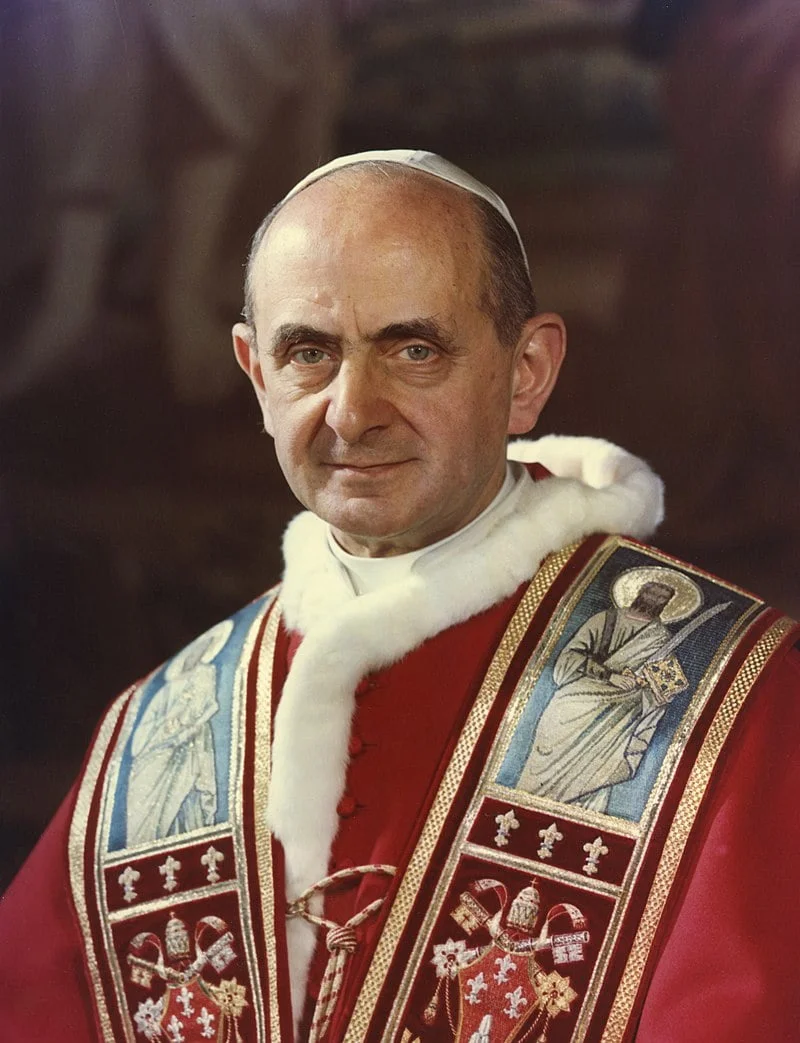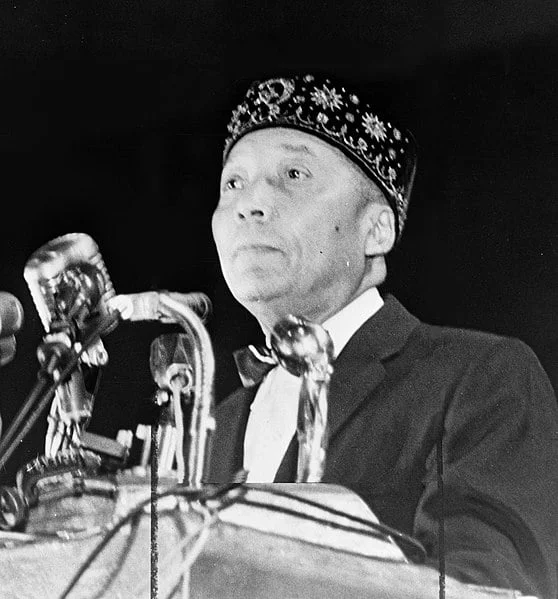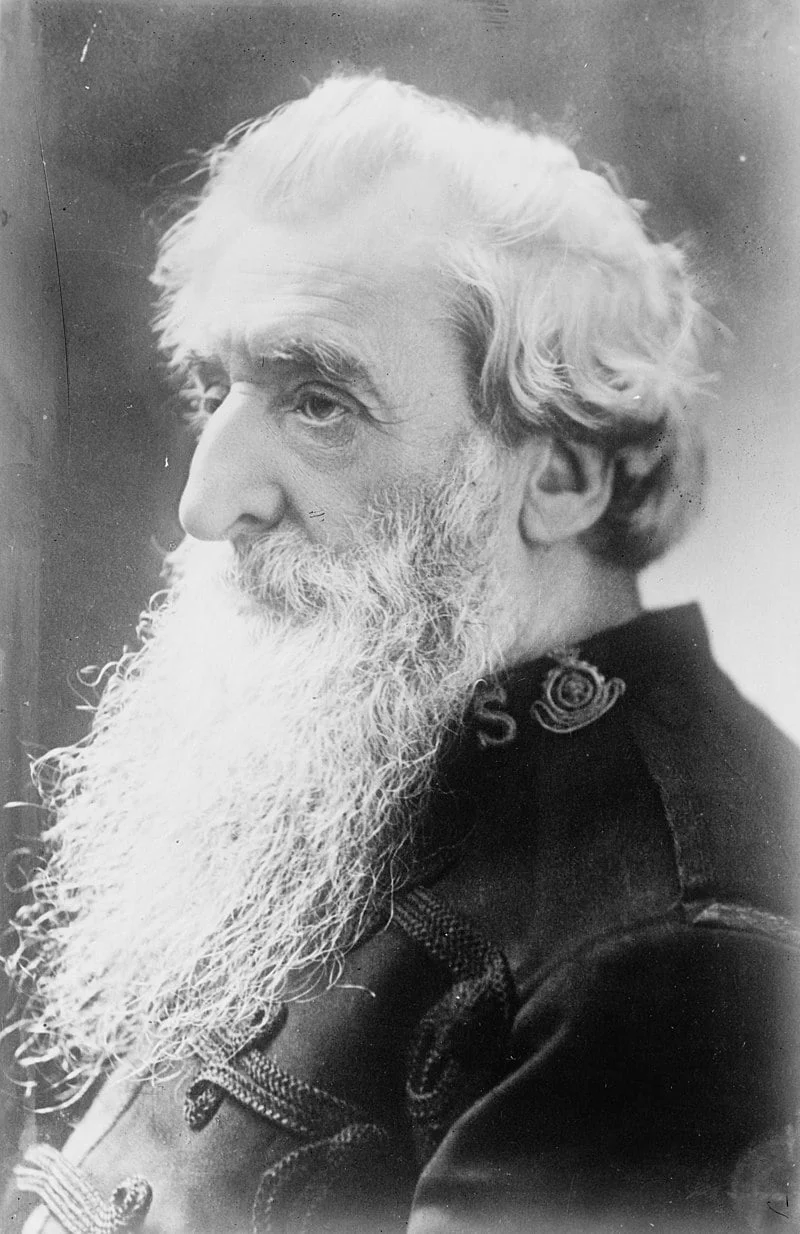Real Celebrities Never Die!
OR
Search For Past Celebrities Whose Birthday You Share

wikipedia.org
Pope Paul VI
Birthday:
26 Sep, 1897
Date of Death:
06 Aug, 1978
Cause of death:
Heart attack
Nationality:
Italian
Famous As:
Head of the Catholic Church
Age at the time of death:
80
Pope Paul VI's Quote's
Early Life and Education
Pope Paul VI, born Giovanni Battista Enrico Antonio Maria Montini, was the head of the Catholic Church from 1963 until his death in 1978. During his papacy, he faced many challenges and implemented significant changes within the Church.
Giovanni Battista Montini was born on September 26, 1897, in Concesio, Italy. His father was a lawyer and member of the Italian parliament. Montini was educated at a Jesuit school in Brescia and went on to study philosophy and theology at the Pontifical Gregorian University in Rome. In 1922, he was ordained a priest and began his career in the Vatican.
Career in the Vatican
After his ordination, Montini joined the Vatican’s diplomatic service and served in various positions throughout Europe. He worked as a secretary to the papal nuncio in Poland, served as a counsellor to the Vatican embassy in France, and was appointed the Vatican’s representative to the United Nations in 1946. In 1954, he was named archbishop of Milan.
Archbishop of Milan
As archbishop of Milan, Pope Paul VI became known for his pastoral care and social justice advocacy. He worked to improve the lives of workers in Milan and established the Center of Social Studies to promote Catholic social teachings. During his time as archbishop, he also worked to modernize the Church in Italy and was seen as a progressive leader.
Election as Pope
On June 21, 1963, Montini was elected Pope and took the name Paul VI. Significant changes within the Catholic Church and the world at large marked his papacy.
Second Vatican Council
One of the most significant events of Paul VI’s papacy was the Second Vatican Council, which was held from 1962 to 1965. Paul VI was a major figure in the council and implemented many of the changes that were agreed upon during the council. These changes included the use of vernacular languages in the liturgy, the promotion of ecumenism, and a renewed emphasis on the Church’s social mission.
Encyclicals and Social Advocacy
During his papacy, Paul VI wrote many encyclicals, including Humanae Vitae, which reaffirmed the Church’s opposition to contraception. He also wrote Populorum Progressio, which called for social justice and economic development in the developing world. Paul VI was a strong advocate for peace and worked to promote dialogue and understanding between different nations and religions.
Reforms within the Church
Paul VI implemented many changes within the Church during his papacy. He revised the Code of Canon Law, established the Synod of Bishops, and reformed the Roman Curia. He also made changes to the Mass, allowing for greater participation by lay people.
Declining Health and Death
In his final years, Paul VI suffered from declining health. He suffered a heart attack in 1974 and was diagnosed with a serious lung condition in 1978. He died on August 6, 1978, at the age of 80.
Legacy
Paul VI’s papacy was marked by significant changes within the Catholic Church and the world at large. He was a champion of social justice and worked to promote peace and dialogue between different nations and religions. His encyclicals and reforms within the Church continue to shape Catholic thought and practice today.
Name:
Pope Paul VI
Popular Name:
Pope Paul VI
Gender:
Male
Cause of Death:
Heart attack
Spouse:
Place of Birth:
Concesio, Brescia, Lombardy, Kingdom of Italy
Place of Death:
Castel Gandolfo, Italy
Occupation / Profession:
Personality Type
Mediator: Poetic, kind and altruistic people, always eager to help a good cause. He become pop because of his altruistic nature.
Giovanni's father Giorgio Montini was a lawyer.
He was the first pope to use an airplane, boarding an Alitalia DC8 bound for Jordan on January 4, 1964
He was the last pope to have a coronation ceremony and later dispensed with the use of the papal tiara, donating it to the National Shrine of the Immaculate Conception in Washington, D.C.
Pope Paul VI survived an assassination attempt in 1970 when a Bolivian painter stabbed him twice at the Manila International Airport in the Philippines
Pope Paul VI was born Giovanni Battista Montini in the village of Concesio, near Brescia, in Lombardy, Italy.
He promoted Christian unity and ecumenical dialogue.
He was the first pope to travel to Israel before the Vatican officially recognized the state.
The first pope to visit six continents during his 15-year papacy.


